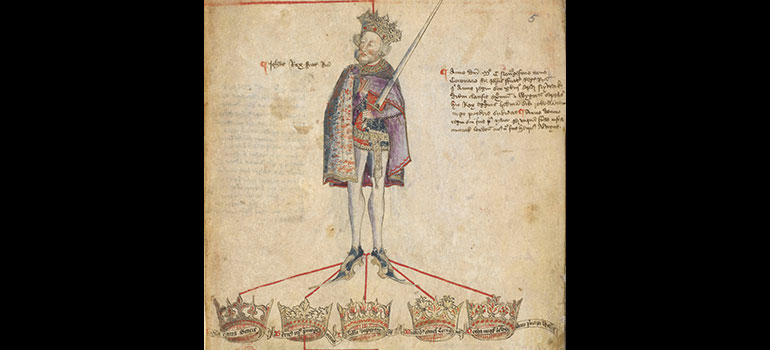The Magna Carta has been revered for centuries as the basis of modern democratic constitutions. 2015 marks the 800th anniversary of the landmark charter between King John and his nobles. UBC professor of political science Max Cameron, director of the Centre for the Study of Democratic Institutions and author of Strong Constitutions, explains the Magna Carta’s origins, impact and why it still matters today.
What is the Magna Carta?
The Magna Carta was given the royal seal by King John almost exactly 800 years ago in June of 1215. The rebellious nobles had assembled at Runnymede just outside of Windsor Castle. In 63 brief articles, they told the king he must comply with the law of the land.
VIDEO: Professor Max Cameron on the significance of the Magna Carta
Who was King John?
King John was detested. He was a rascal by all accounts. One chronicler said that “hell itself is made fouler by the presence of King John.” He was a sexual predator. He preyed on the wives and the daughters of other nobles. He seized their land and their property. He was incredibly abusive. He castrated a nephew. He starved people in his dungeons. And not only that, he was constantly engaged in conflict with France of King Philip II, and was not particularly successful in war.
The nobles rebelled against him and forced him, at Runnymede, to sign this document. Like many founding constitutional documents, it was not successful for long. It was in effect, perhaps, for a couple of months. Pope Innocent issued a papal bull against it almost immediately. It was disavowed, and there was more fighting between the king and his nobles.
But over time, it gradually became accepted as part of the English tradition. So King John goes down in history very much as a reviled figure, and the Magna Carta becomes a paradigm for what constitutionalism means.
Who wrote the Magna Carta?
The Magna Carta was written by and for the barons, but also for freemen in general. It was not only for the nobility. It would not have applied to vassals but it did concern, for example, merchants, soldiers, money-lenders and clerics. It dealt with rights of access to forests, parks, roads, waterways, and other common resources.
It was written by and for men, but it recognized a widow’s right to inheritance and to refuse to be remarried. There is much concern about the payment of debts and the taking of prisoners.
Why is it important?
The Magna Carta was a first attempt to write down and formalize the rule of law. It was really a kind of proto-constitution. It preceded mass literacy and the invention of the Gutenberg press. It came to be known because copies were sent out to abbeys and cathedrals around the country with the instruction to be read out in public.
This is really the birth of legislation—the idea that laws can be put in written form and spread across the land, thereby shaping public opinion.
The Magna Carta has been looked to for inspiration by constitution makers every since.
The framers of the United States constitution, for example, were conscious of the Magna Carta and evoked it in their deliberations. In Canada, the Magna Carta forms part of our common law tradition.
When people talk about writing constitutions today, they talk about writing a “Magna Carta.” That phrase, “Great Charter” in Latin, has become synonymous with constitutionalism. In some ways, it’s really one of the foundational documents of the British constitutional legal order.
What can we learn from the Magna Carta today?
The whole process of creating a rule of law, of making constitutions, is always a dialectical one. Rights and privileges are rarely ceded by those in power out of the goodness of their hearts. They’re conceded in the context of struggles.
I think there’s a lesson here for contemporary constitution makers—that we shouldn’t despair if 10 years after a constitution has been negotiated, it’s overturned or not put into effect properly. These are very slow moving processes. It takes a long time to create a tradition of the rule of law in any society.
And for those of us who have the benefit of the Magna Carta, we should energetically protect the precious freedoms it symbolizes.
VIDEO: Raw footage of interview with Professor Max Cameron

